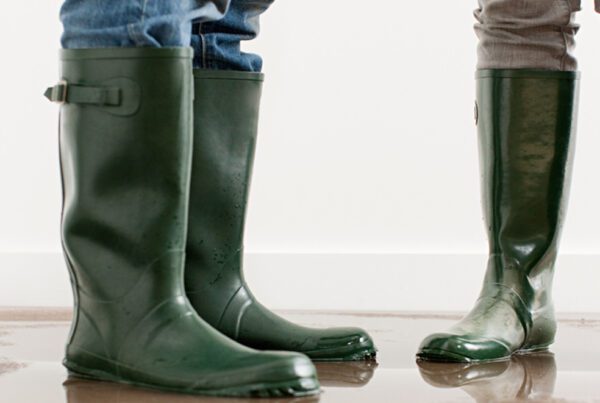
If a tree falls on your home or in your yard, will insurance cover the damage and cleanup? The good news is a standard homeowners insurance policy may pay to repair damage to your house and exterior structures up to the policy limit, minus any deductibles in your insurance contract. You, however, will usually have to pay for removal of the tree from your yard. Let’s look at some of the details, because knowing the specifics of the most common circumstances can help you be prepared for the consequences of fallen trees.
What if a tree falls on my house
It would seem simple — your house gets damaged by a fallen tree, you make a claim to get the tree removed and your structure (including fencing, shed, etc.) repaired, and your insurer assigns an adjuster and begins the payment process. In reality, there’s a bit more to consider such as why the tree fell, who owns the tree and that you might not be able to stay in your home.
When choosing a home insurance policy, there is usually a coverage for Loss of Use. If a covered loss makes that part of the residence where you reside not fit to live in, the Loss of Use, subject to limits will generally pay the necessary increase in living expenses so that your household can maintain its normal standard of living. But what if the incident happens at night and you have pets or valuable items that you don’t want to abandon before adequate repairs are made to ensure security? You should fully understand all of these nuances in your homeowners insurance policy. Your agent can help you with this.
Save all your reasonable and necessary receipts for emergency shelter, such as a hotel, rooms, meals out, emergency purchases, and other immediate needs to secure your safety and functionality until you can get back to your possessions. These receipts can be submitted for review for possible reimbursement under the Loss of Use coverage. “Loss of Use” or “Additional Living Expenses (ALE),” coverage is a percentage of your overall limit of insurance, so make sure you know what that dollar amount is so you don’t overspend and find you have unfunded bills.
Note that the first costs to deal with the damage to your home will come from your deductible; that is, you will pay the first $500 or $1,000 (or whatever your deductible is). This is true whether it was your tree that fell from a windstorm, hail or weight of ice, snow or sleet, or your neighbor’s tree that fell from an event that is insured against. It may seem unfair that you are out your deductible because someone else’s trees, but that is the law in most states.
Also be aware that many home insurance policies have special limits for tree debris. Insurance may pay to get the tree off your house but removing it from your yard might be limited or not be covered. It is important to check your policy for precise terms of coverage.
If you have a rotted tree on your property and your neighbor asks you to remove it, you should take that request seriously. Ignoring it could lead to a liability claim against you if, due to your negligence or refusal to act, a tree from your property falls and damages the property of a neighbor or injures someone.
What if a tree falls in my yard but doesn’t hit anything
Bad news: some homeowners policies may pay nothing if no structure or possessions are damaged. In that case, it would be totally your cost to cut up the fallen tree and dispose of it. Talk to your insurance agent to see if your policy will cover a certain amount per tree.
What if a tree falls on my car
Sometimes a falling tree will miss your home but crush or dent your car. In that case, your homeowners insurance will not cover the damage to the vehicle. But if you have comprehensive insurance on your vehicle, that coverage will often step in and help with the repair or replacement of your automobile and potentially, depending on your auto policy, get you a rental while your car is unavailable.
What you must do if a tree hits your house
Most homeowners insurance policies require you to take a series of steps if a tree falls on your house. You should let your agent and insurer know as soon as possible so that you can begin the claims process. Notify the police in case of loss by theft. And you should take steps as soon as safety allows to protect the structure and its contents from further damage, such as rain intrusion, rodents, and theft. This may need to be done by a professional, so talk to your agent or adjuster about such details. Keep an accurate record of any repair expenses.
If your home is not fit for habitation as a result of the tree damage, you will have to seek shelter elsewhere. Part of your personal disaster plan should include emergency shelter: will you stay with family or friends, will you go to a family/pet friendly hotel, will you need the help of the Red Cross or other local disaster assistance agency. Know where your critical documents are and take them with you so you can make arrangements. You can see why a home inventory stored in the cloud and a family communication plan are so important!




